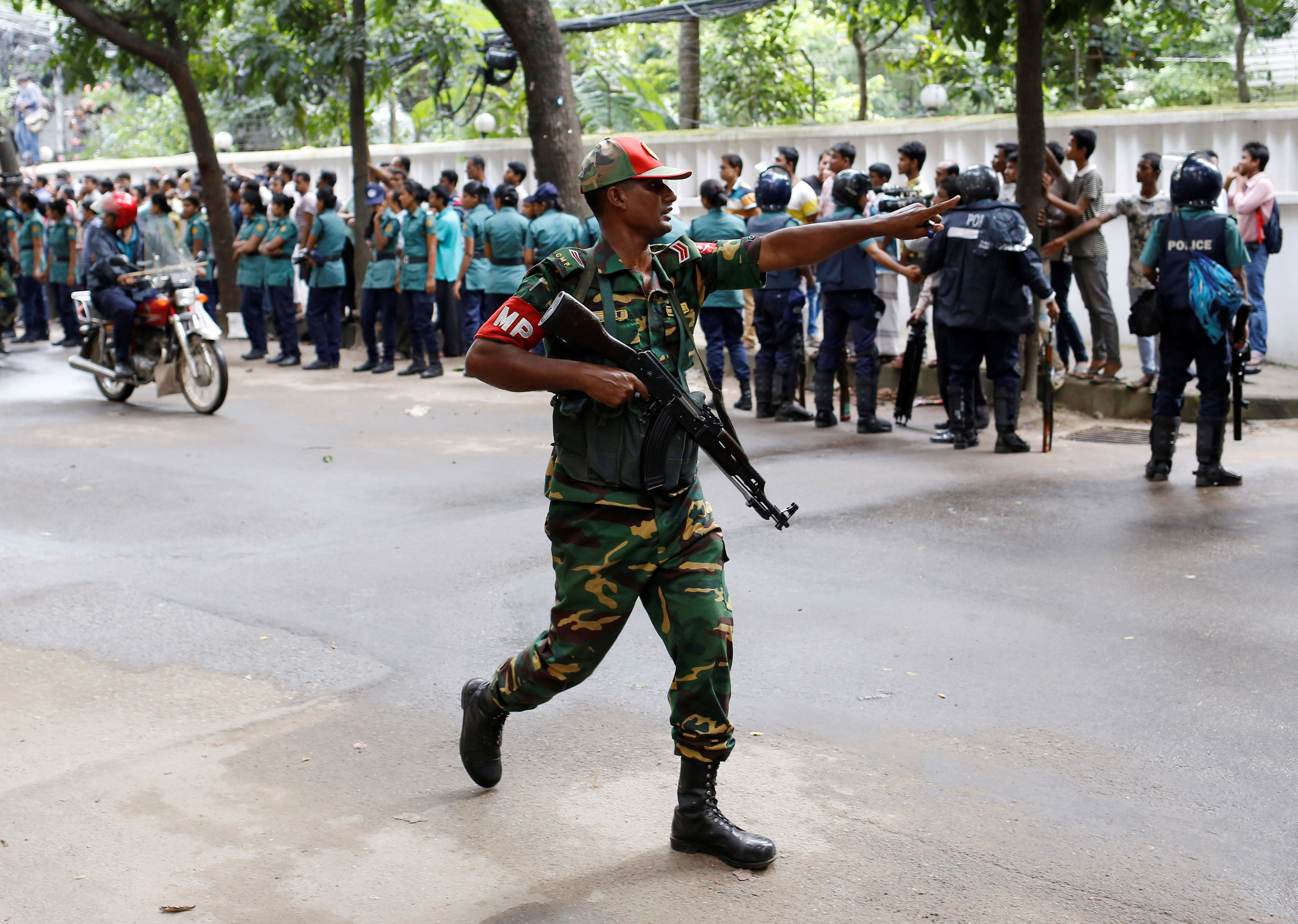
Dhaka: With the Holey Artisan Bakery downstairs and the O'Kitchen Restaurant upstairs, the Dhaka eatery with large windows looking out at a lush lawn suggested an oasis in an increasingly dangerous city.
That illusion ended at about 9 p.m. on Friday, as gunmen burst through the door of an establishment that sells profiteroles and pizzas to Dhaka's elite. "It is an elegant place: Diplomats, successful businessmen, and politicians would meet here," said Agnese Barolo, wife of the international affairs adviser to Bangladesh's prime minister.
"Business deals were decided, political discussions would take place here." In Bangladesh, where the news has recently been of competing extremist groups hacking liberals, religious minorities and others to death, it was, she said, a special spot.
It is not yet clear what broader impact the rampage - which left 20 civilians, two police and six gunmen dead - will have on life and business in the South Asian nation that depends heavily on foreigner sentiment and a $26 billion garment export sector.
The World Bank has warned previously that militancy could derail Bangladesh's path to becoming a middle-income country. All 20 of those who were killed by the militants at the restaurant were foreign nationals, according to an army spokesman.
An interior ministry official quoted survivors as saying the militants told locals to stay out of the way.
One of the attackers cursed a diner for sitting with non-Muslims during Ramadan and proclaimed that the nation would now be seen as an Islamic state, according to another Bangladeshi official briefed on the police investigation.
"Bangladesh has never seen such a horrific incident. It is a strong slap on our image," said Mohammad Siddiqur Rahman, president of the Bangladesh Garment Manufacturers and Exporters Association.
"It is injurious for our image. It will create pressure on our business. But I cannot say at the moment to what extent - that will need few days more."
A country manager of a France-based garment-buying house in Dhaka said his business could now suffer a deep slump.
"We fear they might take a decision to narrow the volume or they may even wind up the business" entirely, he said, asking to speak on the condition of anonymity to avoid harming his business ties. To many, the restaurant and bakery were a symbol of the possibility of a more cosmopolitan future.
"It had a very foreign vibrancy," said Asmaul Housna, a journalist with a local newspaper 'The Daily Star' who visited the eatery often.
"You don't have a lot of cafes like this in Dhaka." Ali Arsalan, a co-owner of O'Kitchen, said he'd left at about 8:10 that night, just before a group of men stormed the stone-and-wood facaded building.
A chef sent a note to the restaurant's WhatsApp group: there'd been gunshots. The men fired indiscriminately as staff and diners fled for their lives, with a group soon corralled on the roof, Arsalan said, citing accounts he received from witness phone calls and messages.
What came next was a slaughter.
"Most of them were killed mercilessly by sharp weapons last night," Army Brig-Gen Nayeem Ashfaque Chowdhury told reporters in Dhaka. Photographs posted by the IS' media wing, purporting to be from the scene, show large pools of blood smeared across the floor and bodies akimbo by upturned chairs.
Arsalan said it was too early to say whether he and his partners would reopen.
"Of course, you don't want these people to win," he said. "But you need to find the strength to continue."